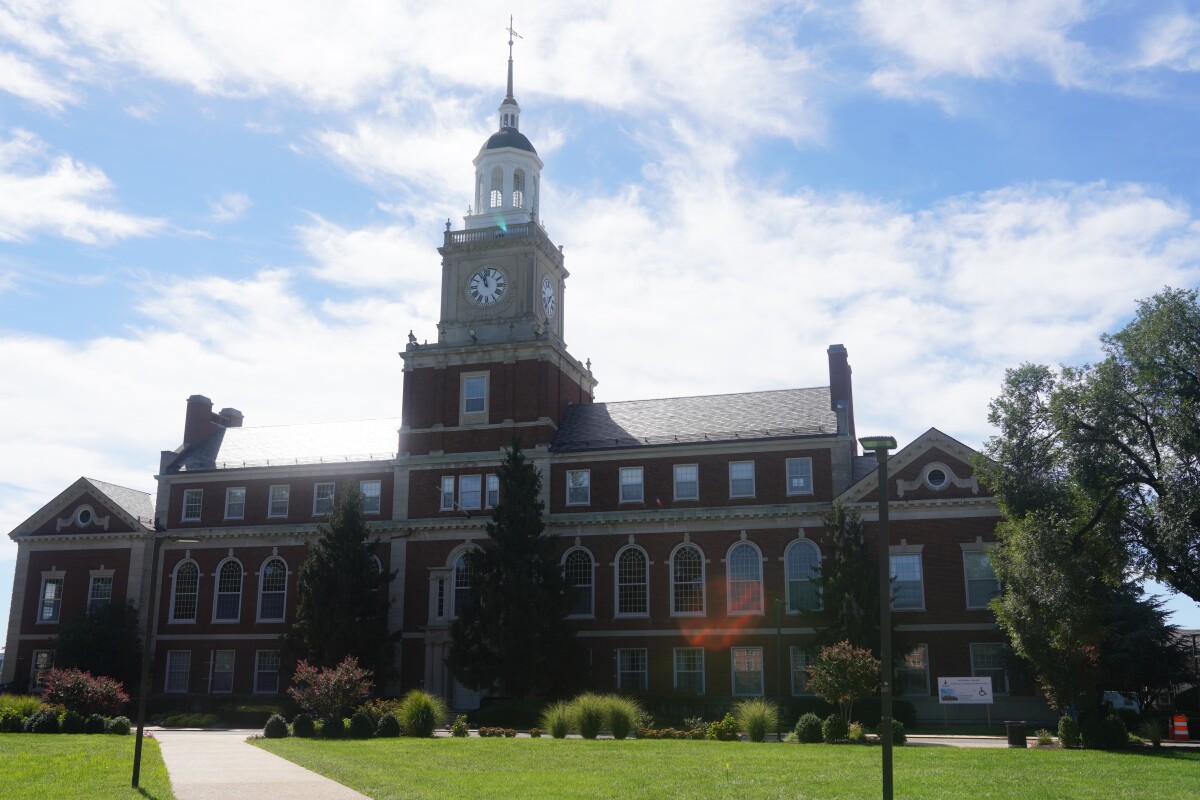Howard University’s recent announcement that it will host the American Economic Association Summer Training and Scholarship Program (AEASP) comes at a time when the economics profession finds itself grappling with a decades-old problem: a lack of diversity.
Four economists from diverse and underrepresented backgrounds, two each from Amazon and Howard University, recently shared their perspectives on the challenges and potential solutions.

Gerald E. Daniels Jr., associate professor of economics and associate director of undergraduate studies in the Department of Economics at Howard University; Jevay Grooms, assistant professor in the Department of Economics at Howard University; Muthoni Ngatia, a current Amazon and former World Bank economist; and Henrique Romero, a senior economist with Amazon’s Supply Chain Optimization Technologies division, addressed questions on why the problem of diversity within the economics field persists, what can be done, and how their life experiences have influenced their work as economists.
Why does the economics profession still struggle with diversity?
Muthoni Ngatia: The lack of diversity in economics becomes self-reinforcing when potential students don’t see themselves represented in the profession. It’s difficult to imagine yourself succeeding in a profession when you can’t find models in people with your lived experience.
There’s also an information barrier about what economics is, the type of work economists do, and how to prepare for a career in economics. Even in college, many of my classmates saw economics as a pathway to a career in investment banking or management consulting, which it certainly can be, however, there many more career opportunities available.
The @NEAEcon President and the Chair of our @HowardU Econ Dept, Omari Swinton giving his presidential speech. The last slide are some of the achievements of past @NEAEcon presidents 🙌🏾 #NEAat50 #AEA2020 #ASSA2020 pic.twitter.com/nXpvi78gEW
— Jevay Grooms (@jevaygrooms) January 5, 2020
Jevay Grooms: There are many reasons. One that I found challenging, and almost prevented me from pursuing it, is very few people in the profession look like me. If you don't see anyone who looks like you in the profession, it could be difficult to imagine yourself in the domain. I also think there is a misconception about the scope of work economists do. As an undergraduate student, I didn't realize economists did work on social policies and disparities, the work that I do now.
Henrique Romero: The process of becoming an economist is long, arduous and rife with potential barriers to diversity. It takes a conscious effort to fight the inertia of the status quo at all steps along the way. For instance, economics departments mostly recruit talent from top PhD programs, which in turn tend to recruit PhD students from elite undergraduate institutions, which already suffer from a lack of representation. A forthcoming paper by Chetty et al. shows that at top-ranked universities, more students come from families in the top 1% than the bottom half of the income distribution.
What needs to happen to get individuals from more diverse backgrounds both interested in—and working—in economics?
Gerald E. Daniels Jr.: Outreach at every level of a student’s education is required to get more folks interested and working in economics. If a company, think tank, university, etc. has a sincere interest in diverse candidates, they should make a conscious effort to speak with and train the various candidates that they need. Therefore, if a company is searching for economists from underrepresented groups, create internships dedicated to universities that actively recruit and support these students. This approach can be extended to any diverse group. I would encourage anyone who needs help, to ask or hire folks like myself to support you.
Ngatia: More information about what economics is, the type of work economists do, and how to prepare for a career in economics. I think there’s a lot to be learned from programs working to get more diversity in STEM. Nurturing programs starting in high school and continuing into college can introduce a more diverse set of students to economics and how economists use data to understand and find potential solutions for social problems. Mentoring programs are also incredibly important to help students and economists throughout the pipeline advance.

Grooms: I think the onus needs to be on the entire profession. It cannot just be underrepresented groups pushing for more diversity. All economists need to acknowledge the importance of diverse backgrounds and a diversity of thought, and see it as a benefit and not a threat. Race disparities, racial inequality, systemic racism, and systems of oppression need not be taboo words but rather, words that we, as economists, acknowledge play a role in societal outcomes. For too long, economists have taken the "I don't see race" approach in research and this undermines the fight to address systemic racism.
Romero: I was the direct beneficiary of AEASP, which provides intensive training in microeconomics, math, econometrics, and research methods with the explicit goal of increasing racial and ethnic diversity. The program seems to be effective at increasing the likelihood of participants to apply to —and attend — a PhD program in economics, complete such programs, and work in an economics-related academic job (Becker et al., 2016). Although I will forever be indebted to this program, I must recognize that programs like this are difficult and costly to scale and can only be one part of a much broader solution. Bayer and Rouse (2016) provide an excellent overview of the state of diversity in the profession and discuss some promising initiatives. A full solution will likely require more equal access to education, from pre-k to PhD.
Why are diverse perspectives important to economics? How does the lack of them hinder economics?
Ngatia: Economic models require assumptions about how individuals and communities behave, those models are only as valid as they are representative of the diversity of human experience. The way we think about how humans behave necessarily depends on the humans we interact with, so a lack of diversity limits perspectives that could inform economic models. Advances in economics, or in any science really, are made by challenging existing modes of thinking. Having the same group of people in the profession limits the set problems they look at, and the tools they use.
Grooms: We have seen what a lack of diverse perspectives results in. To name a few: mass incarceration, the over-criminalization of crack cocaine relative to powdered cocaine, redlining, the overrepresentation of Black children in the foster care system, segregated schooling well after Brown v. Board of Education, and the Tuskegee experiment. Economists help shape social policy, and if we strive to be inclusive in our policymaking, we much also be inclusive in our research.
My comments are featured:
— Gerald Eric Daniels (@GEDanielsJr) June 3, 2020
African-American economic gap remains despite US expansion https://t.co/cuPoqemKDU via @financialtimes
Daniels: If we allow ourselves to assume that policymakers and researchers prioritize topics that relate to their lived experience, then a lack of diversity inherently produces a lack of prioritization of research areas impacting those not represented. This is clear in the lack of research on a host of topics related to racial, gender, and LGBTQIA+ inequities. Diversity is our vehicle for producing innovative work, and a lack of diversity hinders our ability to innovate efficiently. In addition, innovating with a diverse group of people helps us to address issues that affect everyone.
How has your work as an economist been influenced by your life experiences?
Ngatia: Growing up in Kenya, I always knew I wanted to work in a capacity that would improve people’s livelihoods. When I came to college in the US, I wanted to pursue computer science. I was convinced (and still am) that the digital revolution would change the lives of many in Africa and I wanted to be a part of bringing that about. However, the first time I’d ever used a computer was when I was 16 and came to the US on an exchange program. My first semester in college, I felt completely out of my depth in my computer class.
Economics helped give me a framework to understand some of the development challenges facing Kenya and much of sub-Saharan Africa.
My economics class was the complete opposite. Whereas my CS class seemed abstract, economics—with a focus on decision making with scarce resources—made more sense to me. Economics helped give me a framework to understand some of the development challenges facing Kenya and much of sub-Saharan Africa. Perhaps most importantly, I found an incredible mentor in Michael Kremer, one of my professors (and recent Nobel Laureate in Economics) who took a personal interest in me. Much of his research was in Kenya, and his work inspired me to see how economics could be a force for improving people’s lives.
Grooms: My work as an economist has always been motivated by racial and ethnic equality. I imagine a lot of this has to do with growing up a Black girl in a predominantly white society. As an undergraduate, I learned that economics could help solve — or bring to light — issues that impact vulnerable and historically oppressed communities, and I think that has been the underlining theme in my work today.
Romero: Having grown up in one of the most unequal countries in the world (Brazil), equity concerns are always salient to me. Luckily, this aligns very well with Amazon’s Customer Obsession and Earns Trust leadership principles. For instance, we will refrain from enacting changes that would improve the customer experiences of a group of customers at the cost of disproportionally degrading the experience of another group, even if the changes result in an overall improvement in short-term metrics.
In an effort to be a small part of the solution in increasing diversity, I have also devoted time to being involved in the hiring, recruiting, and development process at Amazon, from participating in over 150 interviews, becoming a Bar Raiser in Training, managing the Economist Mentoring program, to representing Amazon at university campus visits and diversity-focused conferences such as SACNAS.

















